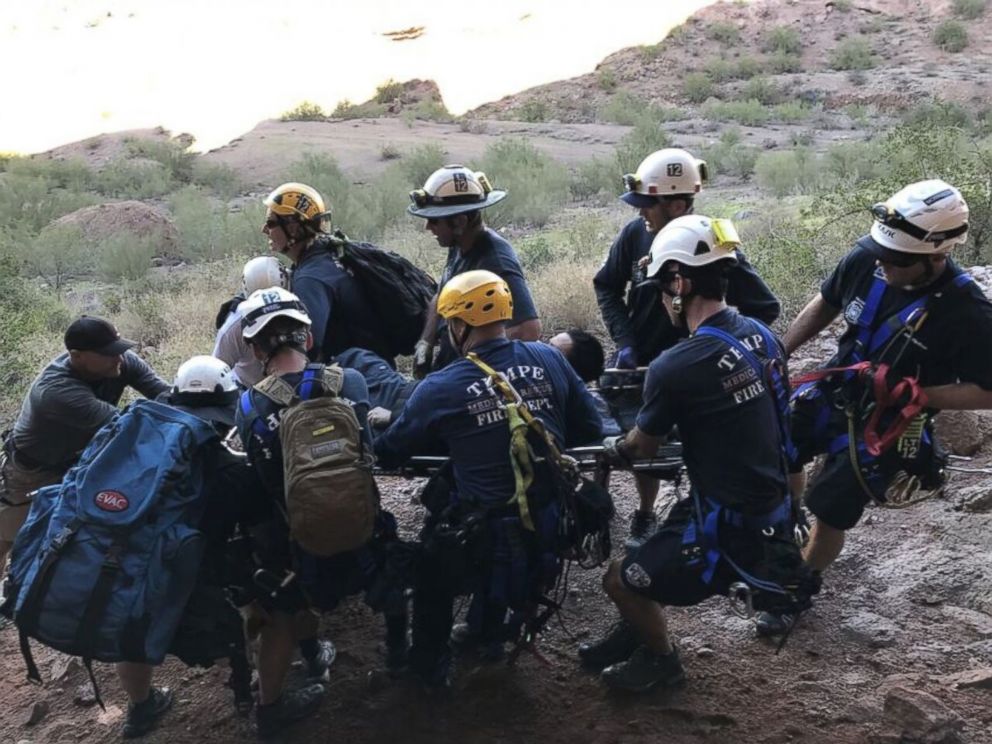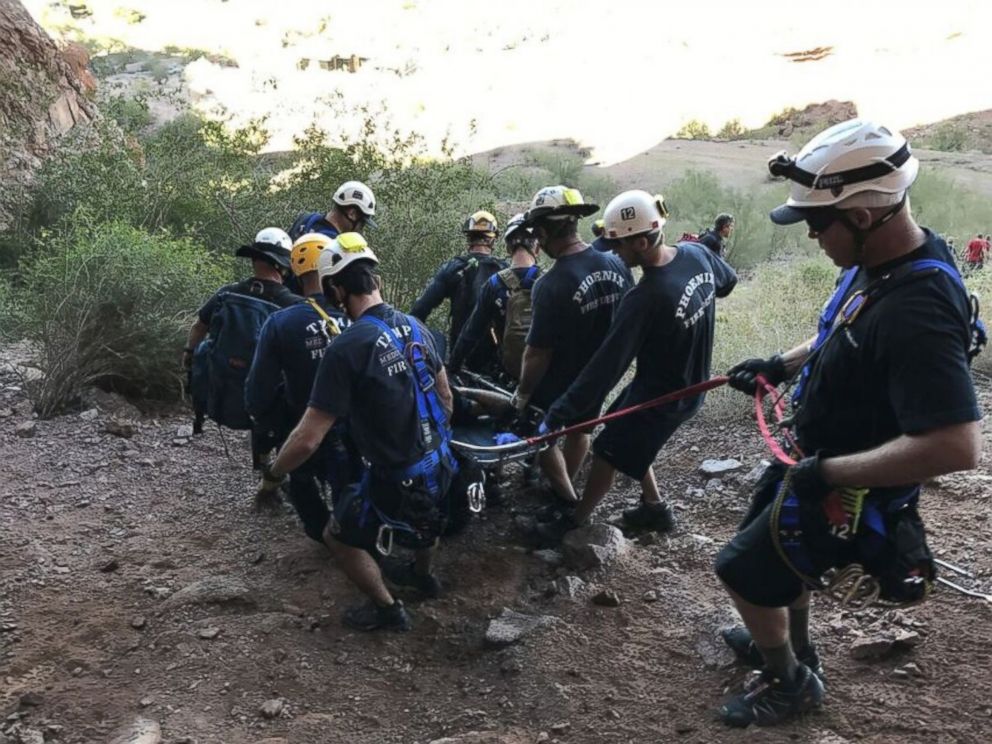BASE Jumper Speaks Out From Hospital Bed After Near-Death Fall
The experienced jumper said he will continue the extreme sport when he recovers.
— -- A BASE jumper in Arizona whose recent jump took a disastrous turn said in an interview with "Good Morning America," from his hospital bed, that when he recovers he still hopes to continue the extreme sport.
BASE is an acronym that stands for four categories of fixed objects from which one can jump: building, antenna, span, and Earth (cliff).
Landon Dirnberger, 39, was BASE jumping at a Echo Canyon Park near Phoenix, Arizona, on Tuesday when he shattered both his heels and fractured his ankle after he jumped from an approximately 300-foot cliff. Dirnberger miraculously fell to the ground next to an off-duty firefighter, David Baumgartner, and his wife, a trauma nurse, who were able to assist in his rescue.
"I remember the whole thing," Dirnberger said of his accident. "When the parachute opened, it opened 180 degrees, so instead of flying away from the cliff, I was flying towards the cliff and didn't have time to turn immediately right or left so I made an attempt to fly it backwards a little bit and then there wasn't enough time or room."
Dirnberger's body ended up crashing against the side of the mountain, before he fell to the ground.
"It just felt like a large jolting," Dirnberger said. "It wasn't like jumping a hundred feet off of something and then landing on the ground. The parachute slowed me down so it was just really painful."
"I stood up two times after I was already on the ground. I wasn't sure what was wrong so I was able to get up, but I quickly realized something was broken and then I needed to sit down," he added.
Dirnberger said he has been participating in the extreme sport, which involves parachuting from a cliff or other high structure, for about three years, and that he has done about 250 BASE jumps.
"For me it's something that gives me a chance. Everything just slows down and clears my mind," he said of the sport. "It’s something that can truly let you block out everything else in the world and let you concentrate on where you’re at and what you’re doing."
He added that despite the accident, he still hopes to get back out there and continue BASE jumping.
"I’d rather be jumping than sitting in a hospital, but I’m not saying I’m not going to break out of the hospital and go jumping," he said. "When I'm better, I'll go do it. As far as changing the way I look at it, I know the consequences of what could happen so when I feel like I'm ready, I'll go out and go again.

Baumgartner, the firefighter who found himself in the right place at the right time, told ABC News that he had planned to go to the park with family and friends to do some climbing and hiking on that day, and that he had witnessed Dirnberger's fall.
"We, from a direct location below, witnessed him make contact from that wall about 200 feet down from his jump, and then fall another 100 feet to where he landed, about 15, 20, feet from my family and friends," Baumgartner told "GMA."
"My wife yelled at me to get down here, so I began down climbing," he said. "She, being an experienced trauma nurse, made contact with the gentleman and made a quick assessment."
"I made direct contact with our dispatch center cause I wanted to give more details than I would have been able to give on the 911 line, to get the resources there and where they needed to be positioned," he said.
"In this particular circumstance God was obviously present because I was just really blessed to be part of the, expediting the process, to get resources there, to get this gentleman off the mountain safely," he added.





